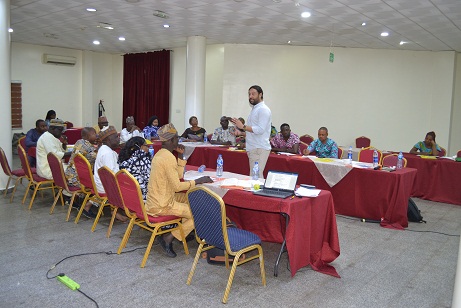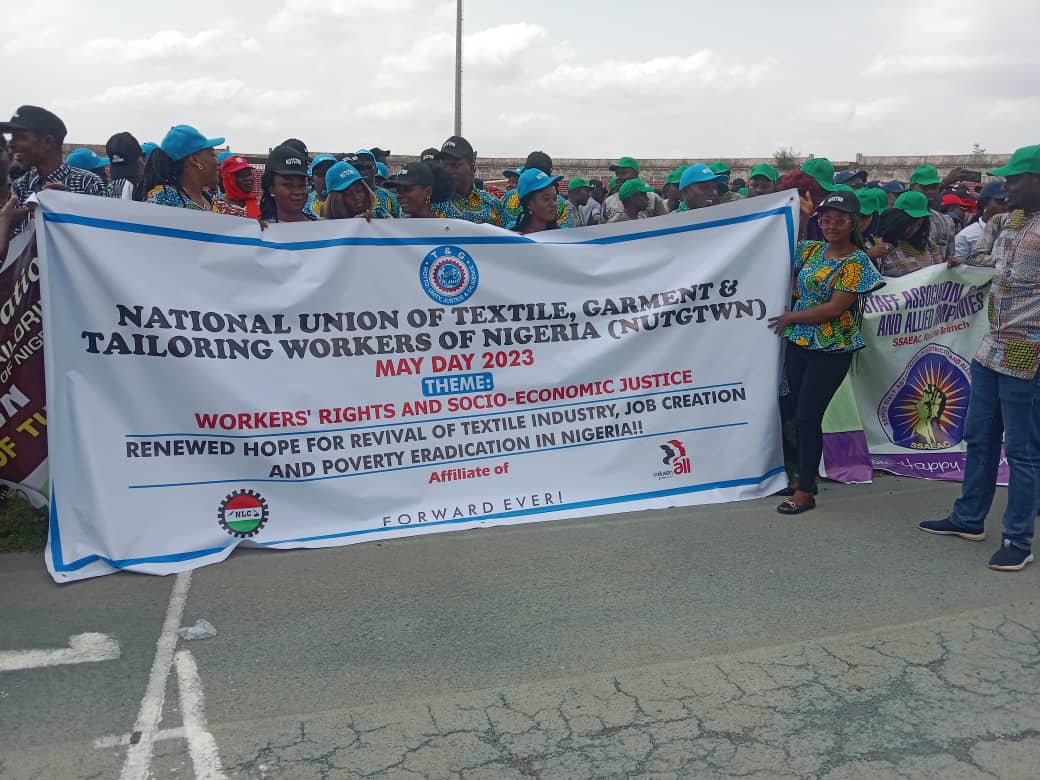The National Union of Textile Garment and Tailoring Workers of Nigeria (NUTGTWN) an amalgamation of 34 textile house unions was registered in 1977, while the formal listing of the union was done under the Trade Unions (Amendment) Decree 22 of 1978.
NUTGTWN is a product of past effort by textile and garment workers to form a formidable organization, capable of defending their interest against the exploitative traits of employers (management) as well as enable them solve their problems collectively. To this extent textile union is as old as the first textile industry established in 1957.
It was a time when textile labour represented the least paid sector not only when compared to the private sector but also in relation to the public sector. A period when the union was faced with the problems of ineffective leadership, decline in membership and other administrative problems. A period when wages were pitiably low, when working environment was unhygienic and uncomfortable for workers.
The emergence of the union can be credited to two main personalities namely: Alhaji Abubakar Abutu and Mr Joseph Bamidele Esho. Alhaji Abutu worked with Kaduna Textiles Limited (KTL) and Mr. Bamidele Esho, a former Teacher who moved from class room to work in the Nigeria Textile Mill, Lagos. Alhaji Abubakar Abutu, in 1962, organized workers of Kaduna Textile Limited (KTL) under a house union known as KTL African Workers Union, while Mr. Joseph Esho organized the textile workers of NTM under the umbrella of Ikeja Textile workers union, Lagos.
The union has gone a long way since the period of house unions in the early 1960s, a time when virtually all employers disregarded the right of workers to form a union. Presently the union is one of the organized 36 industrial unions affiliated to the Nigeria Labour Congress (NLC).
The union until 1997 had over 20,000 members located in over 155 mills spread across the country. The mills are concentrated in Lagos, Kaduna and Kano. Kaduna Textiles Limited (KTL) and the Nigeria textiles mills (NTM) were the oldest in the country. Other textile cities are Asaba, port Harcourt, Aba, Funtua, Jos and Gusau.






